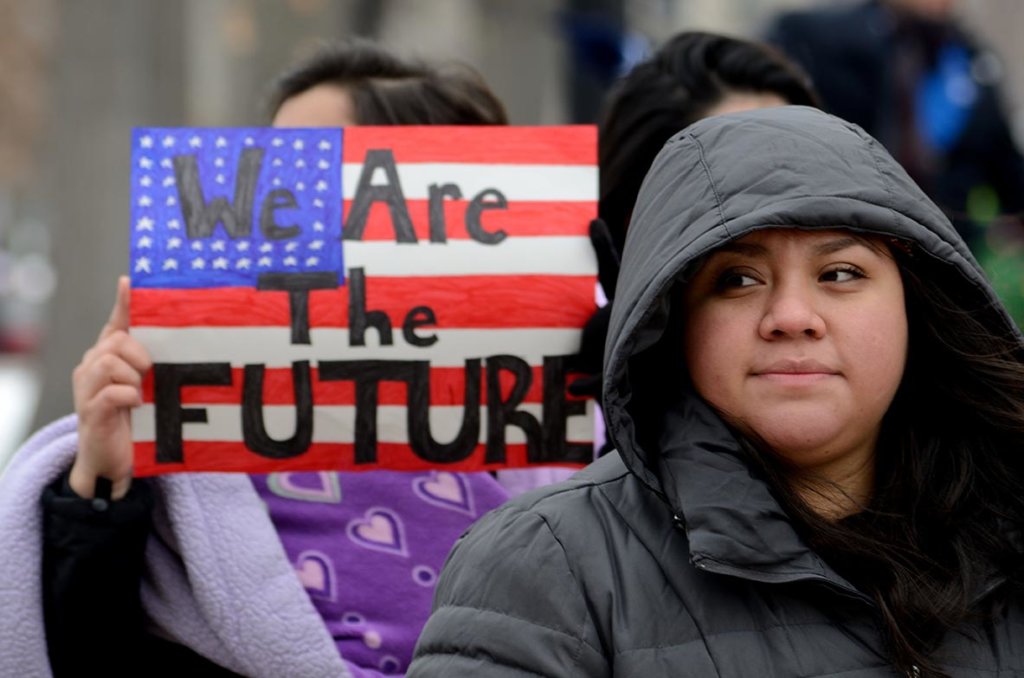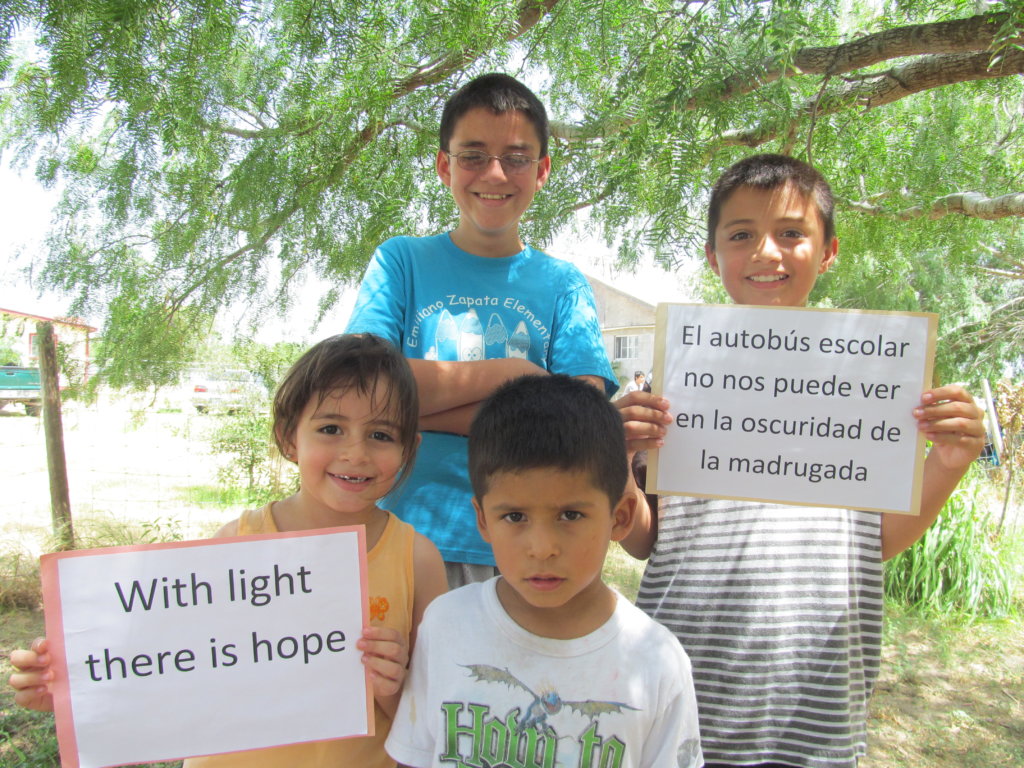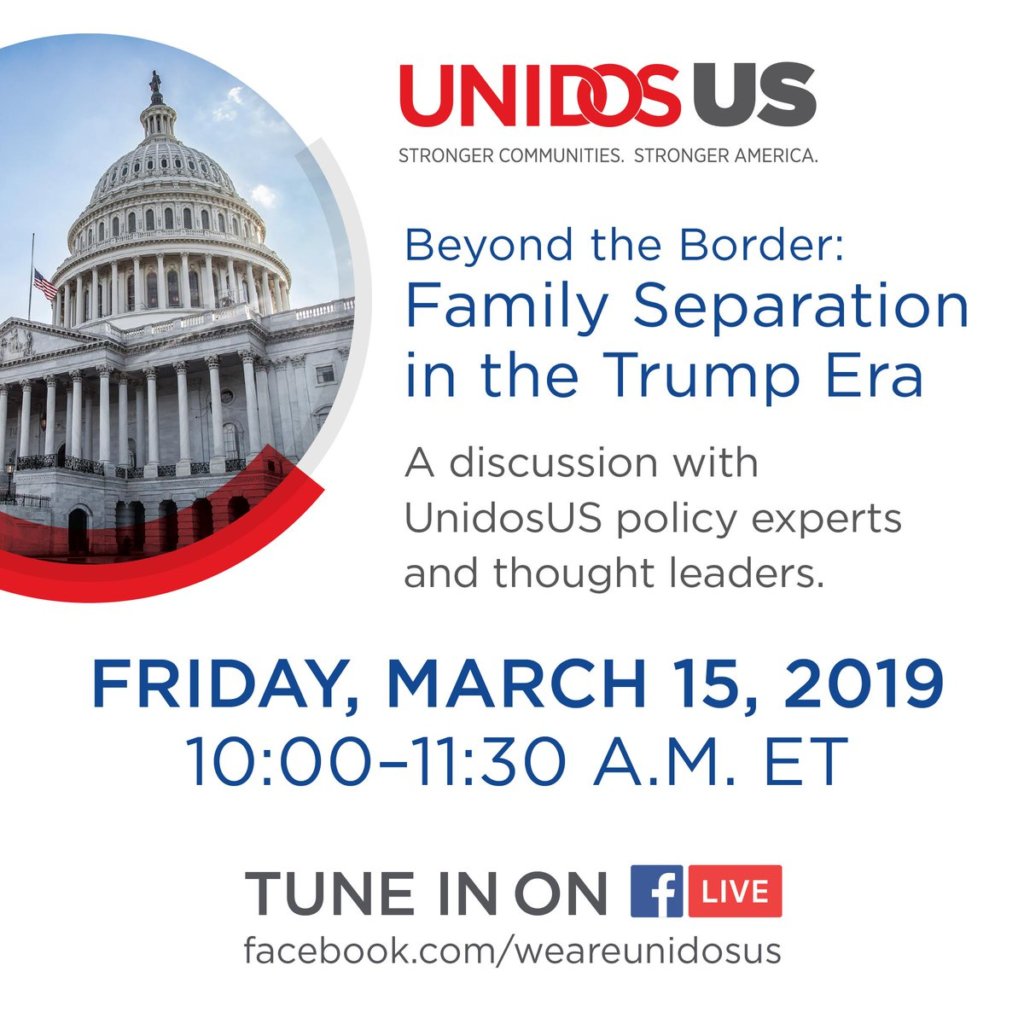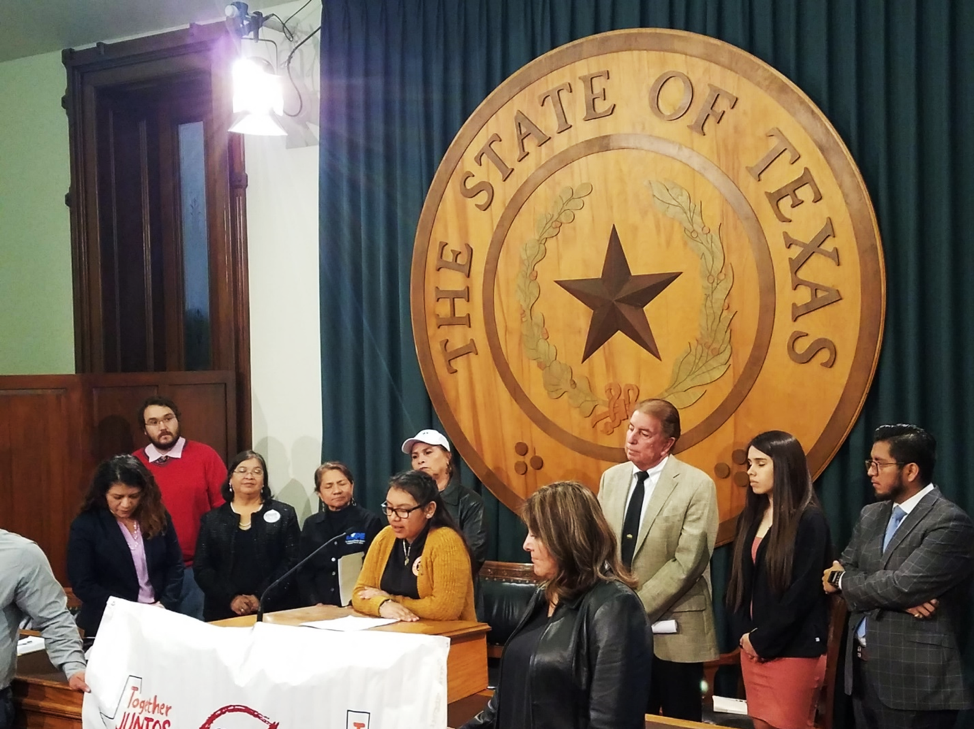Trump’s immigration policies affect all of us
This is preview of our forthcoming report The Rest of the Iceberg: Family Separation in the Trump Era. You can read all five blogs in this series here.

President Trump began his presidential campaign calling Mexican immigrants “criminals and rapists.” This was his opening shot in a war he has waged not only against Latinos and immigrants, but against our values as a country.
During his two years in office, Trump has turned this hateful rhetoric into action. This summer, the nation was horrified by the images of children being torn from the arms of their parents at the border. Unfortunately, the family separation crisis this administration has created goes well beyond our border, and is just the tip of a very large iceberg impacting predominantly Latino families all across the country.
Today, the heightened risks of deportation generated under the Trump administration, and the manifold long-term costs they’ll produce, will be borne greatest by some of the most vulnerable members of our society—our children, the vast majority of which are American citizens. And, in this way, the full impact of the administration’s anti-immigrant policies will have lasting impacts on all of us.

GOING BELOW THE SURFACE
UnidosUS President and CEO Janet Murguía spoke about the nature and severity of the threats faced by U.S.-citizen children and families at the 2018 UnidosUS Annual Conference:
What is happening at the border to families seeking refuge is just the tip of the iceberg of what is happening to Latino families all across the country. Nearly six million American children live with an undocumented parent. Six million. Both the president’s zero-tolerance, and mass deportation policies put every one of those children at risk. Imagine the trauma of living every single minute, of every hour, of every day in fear that your parents will be taken from you—that the next letter in the mail will demand that your Mom appear at a deportation hearing—that the next phone call will be from your Dad, who instead of coming home from work is calling to say goodbye because the plant where he works just got raided. I have seen the faces of children whose parents were taken—right in front of them. I have heard them cry for a parent uncertain whether they will ever see them again. It is not something you can un-see. These are not criminals. They are not gang-members. They are just little girls and boys.
With every stroke of the president’s pen, more children are put at risk: One quarter of the 700,000 DREAMers are parents who have U.S. citizen children. When the president chooses to end DACA, he is separating families from their children. TPS holders from El Salvador, Honduras, and Haiti—many of them in this country for almost two decades—now have nearly 300,000 U.S. children. When the president decides to end TPS, he is separating families from their children.
This blog post is the first in a series that will preview the broad and negative effects of the Trump administration’s immigration policies on areas that are important to all of us: our nation’s economy, education, health, and security. We will examine these issues in detail in a forthcoming UnidosUS report to be published in November.
Subsequent posts in the series will examine how indiscriminate enforcement policies and practices have historically been ineffective and largely serve primarily to tear apart families who are just trying to make a living. The revival of ICE worksite enforcement actions under the Trump administration, for instance, renew poignant questions from a decade ago concerning their dubious track record in achieving ICE’s stated goal of curbing illegal hiring practices.
We will also examine how aggressive interior enforcement can have consequences for the housing market. For example, by attempting to end DACA and TPS, the Trump administration could inadvertently undercut the American housing market in certain parts of the country. It’s estimated that about 94% of all TPS recipients live in 206,000 households, and that about 30% of these households are secured by mortgages. A survey of DACA recipients found that 15% of DACA recipients 25 and older own a house—with presumably a large number being secured by mortgages.

Moreover, we will examine how Trump’s policies are affecting the education of American children. The current environment means, for example, that families are choosing to keep their children home from school instead of letting them go to afterschool activities—a choice that will have negative consequences for them in the future. Teachers have also reported that while immigrant students have expressed fear over deportation, this climate of fear has affected their entire school—even students who may not be directly impacted by the issue of deportation.
We will also explore how the administration is attempting to alter our nation’s legal immigration systems in a way that could disrupt family unity. In this respect, some of the areas that stand to be impacted the most are health care and nutrition. History shows that this would impact U.S.-citizen children the worst, as parents would grapple with whether to subscribe their eligible children to health and nutrition assistance programs.
RELATED CONTENT
- Funding Trump’s Deportation Machine Is Bad News for American Families and Cities Across the Country
- These Are the Lives Disrupted by the Deportation Machine
THESE POLICIES ARE AN ATTACK ON OUR COUNTRY’S VALUES
In July, we reported that the United States Citizenship and Immigration Services had deleted the phrase “nation of immigrants” from the agency’s mission statement. While on its face this move was largely seen as symbolic, in reality it is emblematic of this administration’s broader affront to family unity, the bedrock of our immigration system and a fundamental national value. What’s more, with each new border or interior enforcement policy announcement, it becomes more difficult to avoid the conclusion that these family separation policies are driven by anything other than a desire to disrupt the lives of immigrants of color, including those of the millions of American children of Latino heritage.
And in the end these policies don’t just affect immigrants (legal or undocumented)—or even families of immigrants. They affect all of us.
This is the first in a series on how Trump’s immigration policies affect all Americans. It is based on a forthcoming report on the effects of Trump’s immigration policy by UnidosUS.
By Carlos Guevara, Senior Policy Advisor, UnidosUS



